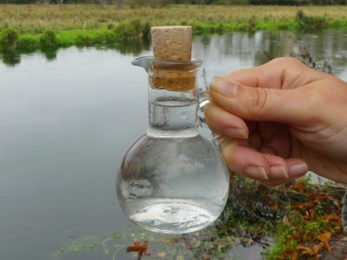As my train pulled into Vauxhall station on Sunday morning, I could tell that many of the people on it were going to the same place that I was. Large groups of people were dressed head to toe in blue; nodding, smiling at each other, striking up conversations. Out on the street I joined throngs of people all filtering towards Albert Embankment, where the largest ever gathering of people coming together to march for our rivers, lakes and seas was assembling.
There were banners, placards, props, hats and costumes, music being played, speeches being given, slogans being chanted. The Wildlife Trusts were among the hundred-plus organisations supporting the March for Clean Water, and I joined colleagues from Hampshire and Isle of Wight Wildlife Trust, Sussex Wildlife Trust, Essex Wildlife Trust, London Wildlife Trust, and South and West Wales Wildlife Trust to march through the streets of London on behalf of our waters.
Other marchers included a raft of environmental charities and sporting organisations, campaigners, local community groups, wild swimmers and some perhaps less expected but very powerful voices, from the Women’s Institute to the GMB, a workers union representing hundreds of water sector employees angry about the environmental performance of their employers.



